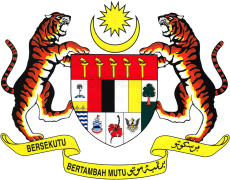- Background
- Trade With Chile
- Scope
- Trade In Goods
- Export-Import Procedures
- Rules Of Origin
- Contact Us
BACKGROUND
-
Malaysia-Chile Free Trade Agreement (MCFTA) is the first bilateral FTA between Malaysia and a Latin American country.
-
Malaysia and Chile commenced negotiations on the bilateral FTA in June 2007. The MCFTA were concluded in May 2010 and the Agreement was signed on 13 November 2010 in Yokohama, Japan.
-
MCFTA entered into force on 25 February 2012.
-
MCFTA is Malaysia’s fifth bilateral free trade agreement after Malaysia-Japan in 2005, Malaysia-Pakistan in 2007, Malaysia-New Zealand in 2009 and Malaysia-India in 2010.
-
The main text of the Agreement can be viewed via this link MCFTA Agreement
TRADE WITH CHILE
-
In 2016:
-
total trade with Chile decreased by 29.3% to RM1,138.4 million (US$272.3 million) compared with RM1,610.4 million (US$415.2 million) in 2015.
-
exports declined by 20.5% to RM680.9 million (US$163.9 million) compared with RM856.4 million (US$222.8 million) in 2015.
-
imports dropped by 39.3% to RM457.5 million (US$108.5 million) compared with RM754.0 million (US$192.5 million) in 2015.
-
-
Major exports to Chile in 2016:
-
Electrical and Electronic Products (21.2%)
-
Chemicals & Chemical Products (13.2%)
-
Rubber Products (13.0%)
-
Wood Products (11.7%)
-
Palm Oil & Palm Based Products (9.6%)
-
-
Major imports from Chile in 2016:
-
Metalliferous ores and metal (31.3%)
-
Manufactures of Metal (16.5%)
-
Other Agricultures (13.9%)
-
Seafood, fresh, chilled or frozen (11.2%)
-
Processed Food (8.4%)
-
SCOPE
Areas covered under MCFTA include:
-
Initial Provisions
-
General Definitions
-
Trade in Goods
-
Rules of Origin
-
Customs Administration
-
Sanitary and Phytosanitary Measures
-
Technical Barriers to Trade
-
Trade Remedies
-
Cooperation
-
Transparency
-
Institutional Provisions
-
Dispute Settlement
-
General Exceptions
-
Final Provisions
TRADE IN GOODS
-
Malaysia and Chile have agreed to progressively reduce or eliminate tariffs on their respective industrial and agricultural products.
-
Chile undertook to:
-
fully eliminate import duties for 6,960 tariff lines from the date of entry into force for products that include video recording apparatus and data processing machines (electrical and electronic items), vulcanized rubber thread and cord, surgical gloves, vegetable fats, cocoa butter, fats and oil and parts of aircraft.
-
by 2015 (year Three) further eliminate tariff on 355 tariff lines that include palm oil, cocoa powder containing added sugar, rubber gloves, textile, apparel and clothing accessories, footwear, ceramic tiles, paints and varnishes, ceramic sanitary products, glass and glassware, paper products, machinery equipment, wooden furniture products.
-
by 2017 (year Five) further eliminate tariff on 313 tariff lines for products such as examination gloves, palmatic acid and stearic acid, paints, polypropylene and polyethylene, wooden frames and pallets, tyre flaps, float glass, ceramic wares, chemical products, plastic products, iron and steel bars and rods, rubber products, wood products, footwear and motor vehicles.
-
-
Malaysia undertook to:
-
fully eliminate import duties on 9,311 tariff lines upon date of entry into force.
-
by 2015 (Year Three) further eliminate 405 tariff lines on products such as vegetable oil, glycerol, floorcovering, plastic products, flooring materials of rubber, particle board, veneered panels, waterproof footwear, copper products, high pressure hydro-electric conduits and kitchenware.
-
by 2017 (Year Five), reduce import tariff on 500 tariff lines further cap duties at 5% on items that include compounded rubber products, tubes, pipes ad hoses of vulcanized rubber, new pneumatic tyres, transmission belts, aluminum products, heavy vehicles including concrete-mixer lorries, mobile drilling derricks and fire-fighting vehicles.
-
-
Excluded Items (where normal tariff rates/current MFN rate will apply) by both countries:
-
Chile: 96 tariff lines comprising wines and alcohol, tobacco, rice wheat or meslin flour, sugar, glucose and syrup, honey and used pneumatic tyres.
-
Malaysia: 138 tariff lines comprising items such as explosives, ammunition, rice, tobacco and alcoholic beverages.
EXPORT-IMPORT PROCEDURES
Exporting to Chile
-
If you are exporting to Chile, please click this link to check on the preferential duties under MCFTA:
Chile - Schedule of Tariff Commitments which should be read together with document Annex 3-Chile
-
Nevertheless, in order for your product to enjoy the preferential duties, it must fulfill the Rules of Origin (ROO) criteria under MCFTA.
-
Products listed under Chile’s Exclusion List (EXCL) do not qualify for duty reduction or elimination under MCFTA. The Chilean importer would need to pay the duty based on the current MFN rate.
Importing from Chile
-
If you are importing from Chile, please click this link to check on the preferential duties under MCFTA:
Malaysia - Schedule of Tariff Commitments which should be read together with document Annex 3-Malaysia
-
Nevertheless, in order for the product to enjoy the preferential duties, it must fulfill the Rules of Origin (ROO) criteria under MCFTA.
-
Products listed under Malaysia’s Exclusion List (EL) do not qualify for duty reduction or elimination under MCFTA. The Malaysian importer would need to pay the duty based on the current MFN rate.
RULES OF ORIGIN
Interested parties can review the specific rules related to your product in the following links:
CONTACT US
For Preferential Certificate of Origin / Rules of Origin related matters, please contact:
- Ms. Zanariah Saibi
DL : 03-6208 4752
Email : zanariah.saibi@miti.gov.my - Ms Suharni Mohamed Rosli
DL: 03-6208 4715
Email: suharni.rosli@miti.gov.my
- Ms. Nur Aqidatul Atika Muhammad Ghani
DL : 03-6208 4746
Email: aqidatul.atika@miti.gov.my
For other enquiries, please contact the FTA focal point(s) as follows:
- Ms. Emilda Zulkeflee
DL: 03-6200 0540
Email: emilda@miti.gov.my
|
Ministry of Investment, Trade and Industry
Visitor Count : 1447981
Last updated : 02-03-2026
|
Security Policy | Privacy Policy | Term & Conditions | Disclaimer
Best viewed using Internet Explorer 10 and above with resolution 1280 x 800 |
 |
| 









